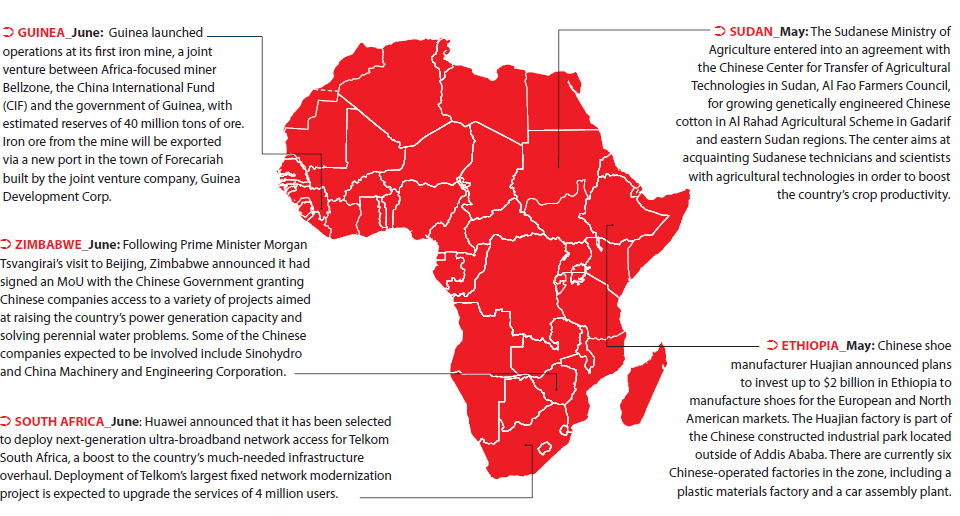|

China-Africa Agricultural Cooperation – What's Next?
China's involvement in Africa's agricultural sector has recently been gaining more traction. According to China's Ministry of Agriculture, China-Africa trade on agricultural products witnessed rapid growth in 2011, with total trade volume standing at nearly $4.8 billion. This represented a year-on-year increase of over 40 percent and almost 8 times 2001 trade levels. Of this figure, Chinese imports of agricultural products from Africa increased by about 45 percent year on year to reach $2.33 billion.
In addition to rising agricultural trade volumes, China has continually invested in Africa's agricultural sector. China has set up over 25 agricultural demonstration centers throughout the continent, with more than 4,000 agricultural technicians and practitioners trained since 2006, when several agricultural targets were laid out as part of the eight measures endorsed by the Forum on China-Africa Cooperation (FOCAC). Whereas China will benefit by securing new markets as well as receiving African imports, the ultimate goal is to increase African crop yields and enhance food security. In Mozambique for instance, China has pledged $800 million to modernize Mozambique's agricultural infrastructure, which will include water catchment projects. This year's FOCAC is bound to have equally ambitious targets.
In the agricultural sector, China clearly has lessons to offer Africa as the country feeds 20 percent of the world's population on only about 8 percent of the world's arable land. Moreover, an overwhelming majority of what China consumes is locally grown, although this has begun to change due to a growing population and pollution effects that are reducing arable land. In contrast, most African countries remain net importers of food, especially grain. This situation is further exacerbated as more than three-fourths of the continent relies on agriculture for its livelihood mainly in subsistence form, which is often insufficient to satisfy all of domestic demand. This contrast between the regions has presented synergies that can indeed result in a "win-win" situation for both sides.
As with other sectors, China is also set on combining aid and business through the training of African experts and agreements, which in turn enables Chinese agri-business companies to enter various African markets. Moreover, the China-Africa Development Fund (CADFund) has also recently announced its intention to increase Chinese farming investments in Africa, particularly in Southern Africa. The fund plans on expanding its existing cooperation with agricultural banks in Africa.
The ChinAfrica Econometer is produced by The Beijing Axis, a cross-border business bridge to/from China in four principal areas: Commodities, Capital, Procurement, & Strategy.
For more information, please contact: Barry van Wyk, barryvanwyk@thebeijingaxis.com
www.thebeijingaxis.com |